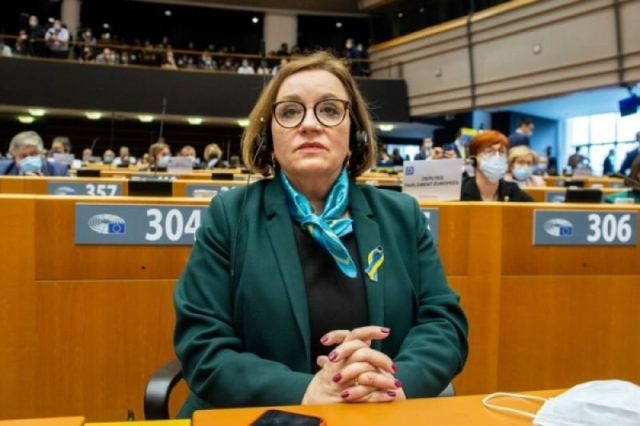
On 11 July 2023, ECR Member of the European Parliament Anna Zalewska saw her resolution on vocational training adopted by an overwhelming plenary majority of 508 votes in favour, 12 against and 76 abstentions.
The text had already passed the responsible committee process at the Committee on Employment and Social Affairs (EMPL) with 43 votes in favour, cero votes against and 2 abstentions.
From its very title, the own initiative parliamentary report wished to foster vocational education and training (VET) and adapt it as a tool for employees’ success, as well as a building block for a digital EU economy immersed in its so-called fourth industrial revolution or “industry 4.0”.
The Polish MEP highlighted that best practices at national level should form the basis for VET policy improvement. She also pointed out that that the labour market inclusion of young people aged 16–24 not engaged in education, employment or training (NEETs) should become a major focus and cornerstone of a high-quality VET.
Three months later, on 28 September 2023, the Committee on Employment and Social Affairs informed its Members about the European Commission’s follow-up of the Zalewska report. The follow-up is focused on nine areas relating to the parliamentary resolution.
The first one refers to VET policy at EU level. Here, the Commission proposes the “Technical Support Instrument” in order to support Member States to improve vocational education and training. Such Technical Support Instrument is the EU programme that provides tailor-made technical expertise to EU Member States in order to design and implement reforms. So one can conclude that nothing really new is coming in this field after the resolution.
On best practices, the Commission recalls the regular exchanges with Member States’ representatives and social partners organised in the framework of the Advisory Committee on Vocational Training and the meetings of the Directors-General for Vocational Education and Training, again nothing new from the perspective of the Zalewska resolution.
With regards to unpaid traineeships and a potential common legal instrument ensuring fair remuneration for traineeships and apprenticeships, the Commission quotes its previous 2023 Work Programme to propose a reinforced framework addressing remuneration and social protection. Again, one cannot see much added value in the Commission’s direction coming from the Parliament’s contribution.
Neither is there anything new after the resolution regarding transversal skills.
Little more clarification is given to education and training for disadvantaged and low-skilled groups. The Commission states that “targeted measures and flexible training formats should prevent early leaving from education and training and support the school-to-work transition”, but we have no clue about what those targeted measures and training formats would be.
Despite the parliamentary call, the 2023 European Year of Skills has been ignored by the European Commission as to new proposals in order to develop skilling in vocational training.
An equal lack of novelty is deployed regarding the European Alliance for Apprenticeships educational campaigns and activities or the showcasing in the EuroSkills event. No further cooperation with tripartite advisory bodies is suggested.
In terms of NEETs integration, the Commission only mentions a possible increase of the budget coming from the European Social Fund Plus, which would need to be discussed at national or regional level: lack of clarity prevails, once more.
Finally, the Commission announces a proposal for a Council Recommendation on updated learning mobility framework including VET, the sole concrete measure taken after Mrs. Zalewska’s resolution; but this is not specific to VET, covering a more general promotion of learning mobility within the European Union.
In conclusion, zero new initiatives coming from the European Commission after the work undertaken by the European Parliament under the leadership of Mrs. Zalewska. All in all, a very cumbersome and bureaucratic process for a rather slim result. Definitely the Commission does not seem used to providing service to the other two institutions; perhaps it thinks that it should be the other way around.
Source of image: Radio Wroclaw



 Subscribe
Subscribe